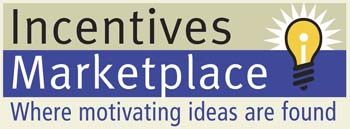Maximizing Employee Engagement with Effective Recognition Programs

Employee engagement is a critical component of a successful and thriving business. When employees feel valued and appreciated, they are more likely to go the extra mile, exhibit loyalty, and contribute to a positive workplace culture. One of the most effective ways to enhance employee engagement is through recognition programs. These programs create an environment where employee contributions are celebrated, increasing motivation and overall satisfaction.
Why Employee Engagement Matters
Employee engagement is more than just job satisfaction—it’s about creating a connection between employees and the company’s mission, values, and goals. Engaged employees are not only more productive but also more creative, resilient, and committed to the company’s success. A Gallup study found that companies with highly engaged employees experience 21% greater profitability, demonstrating the significant business impact of engagement.
Recognition programs play a crucial role in fostering engagement by acknowledging employees’ hard work and accomplishments. When recognition becomes a regular part of your company’s culture, employees feel more aligned with company values, leading to better retention rates and improved performance.
The Power of Recognition Programs
Recognition programs are designed to reinforce positive behavior, celebrate accomplishments, and ensure employees feel appreciated for their contributions. These programs can range from small, everyday acknowledgments like a simple “thank you” to large-scale rewards for hitting major milestones. No matter the size or scope of the recognition, it sends a powerful message: your efforts matter.
There are several benefits to implementing an effective recognition program, including:
- Increased Motivation: Employees who are recognized for their efforts are more likely to remain motivated and continue performing at a high level.
- Higher Retention Rates: Acknowledging employees’ contributions helps to reduce turnover by fostering a sense of loyalty and belonging.
- Improved Team Morale: Recognition programs create a positive work culture where achievements are celebrated, encouraging collaboration and mutual respect.
- Boost in Productivity: Engaged employees who feel appreciated tend to be more productive, driving better business outcomes.
Key Elements of an Effective Reward System for Employees
Creating an effective reward system for employees requires thoughtful planning and an understanding of what motivates your workforce. A successful recognition program should be meaningful, timely, and inclusive. Here are key elements to consider when designing your company’s reward system:
Personalization
One size does not fit all when it comes to recognition. Employees have different preferences when it comes to how they want to be recognized. Some may prefer public recognition during team meetings, while others might value a more private acknowledgment, such as a personalized email or note. Additionally, rewards should be tailored to the individual—what motivates one employee might not be as effective for another.
At Incentives Marketplace, we offer over 13,000 incentive options carefully curated by experts to ensure businesses have a wide range of rewards that appeal to every type of employee. Whether it’s gift cards, travel experiences, or high-end merchandise, you can find the right reward to match your employees’ preferences.
Consistency
For recognition programs to be effective, they must be consistent. Recognition should not only be reserved for major milestones; instead, it should be an ongoing practice integrated into the daily work environment. This ensures employees feel consistently valued, not just during special occasions or year-end reviews.
A good practice is to implement both formal and informal recognition. Formal recognition might include quarterly awards, while informal recognition could be as simple as a spontaneous thank-you note or shout-out in a team meeting.
Timeliness
Recognition is most effective when it’s given soon after the accomplishment or behavior is rewarded. Delayed recognition can weaken the impact, making it feel like an afterthought rather than a sincere acknowledgment. Timely recognition reinforces positive behaviors and motivates employees to continue contributing at a high level.
By leveraging Incentives Marketplace’s expertise and resources, companies can deliver rewards and recognition promptly, maintaining the momentum of motivation and appreciation.
Fairness and Transparency
A recognition program must be fair and transparent. Employees should know what behaviors or accomplishments are being recognized and how the selection process works. Ambiguity can lead to resentment or feelings of unfairness, negating a recognition program’s positive impact. Establishing clear criteria for recognition and ensuring everyone has an equal opportunity to be rewarded is essential for building trust in the program.
Aligning Rewards with Company Goals
A great recognition program not only acknowledges individual accomplishments but also ties them to the company’s overall goals and values. For example, if teamwork is a core value, then recognizing employees who demonstrate exceptional collaboration can reinforce that value across the organization. Aligning recognition with business objectives helps employees understand how their efforts contribute to the company’s success and fosters a stronger connection between their work and the bigger picture.
Incentives Marketplace works closely with businesses to design recognition programs that not only engage employees but also drive business results. By aligning rewards with company goals, businesses can create a culture where employees are motivated to work toward shared objectives.
Different Types of Employee Recognition Programs
There are many ways to structure employee recognition programs, each offering unique benefits. Here are some common types of recognition programs:
Peer-to-Peer Recognition
In peer-to-peer recognition programs, employees can nominate their colleagues for rewards or special recognition. This type of program fosters a supportive work environment where team members appreciate each other’s contributions. Peer-to-peer recognition also allows employees to build stronger connections and highlight accomplishments that managers may not always see.
Manager-to-Employee Recognition
This is one of the most traditional forms of recognition, where managers take the lead in recognizing employees for their hard work and achievements. Manager-to-employee recognition can take the form of formal awards, such as “Employee of the Month,” or more informal acknowledgments, like verbal praise or a handwritten note.
Milestone Recognition
Milestone recognition celebrates employees’ long-term commitment to the company, such as work anniversaries or reaching significant career achievements. These programs are particularly important for boosting retention, as they show employees that their loyalty and dedication are valued.
Performance-Based Recognition
This type of program rewards employees based on specific performance metrics or objectives. For example, meeting or exceeding sales targets, completing projects ahead of schedule, or providing exceptional customer service can all be grounds for recognition. Performance-based recognition helps drive business outcomes by rewarding behaviors that contribute to the company’s success.
Employee Wellness Programs
In recent years, recognition programs have expanded to include wellness initiatives. These programs reward employees for prioritizing their physical and mental health, such as participating in fitness challenges, attending wellness workshops, or practicing mindfulness. Employee wellness programs demonstrate that the company cares about its employees’ well-being, which can further enhance engagement and retention.
Measuring the Success of Recognition Programs
Implementing a recognition program is only the first step. To ensure that your program is effective, measuring its impact is essential. Key performance indicators (KPIs) such as employee engagement scores, retention rates, and productivity levels can provide valuable insights into how the program is performing.
Incentives Marketplace works with businesses to track and analyze the effectiveness of their recognition programs. By regularly reviewing these metrics, companies can adjust their programs as needed to maximize their impact and ensure they achieve the desired outcomes.
How Incentives Marketplace Can Help
At Incentives Marketplace, we understand that employee engagement and recognition are essential to driving business success. For over 21 years, we have been helping clients engage, inspire, and reward the people most important to their business. Our recognition programs are designed to not only celebrate employee achievements but also align with your company’s goals and values.
With over 13,000 carefully selected incentive options, we offer diverse rewards to meet the needs of businesses of all sizes—from Fortune 500 companies to regional firms with fewer than 100 employees. Our expertise, resources, and commitment to client success ensure we deliver recognition programs that make a real impact.
We succeed when our clients do, which is why we’re only paid when our clients see results. Our partnership with you means more than just a service—we become an integral part of your team, helping you build a culture of recognition that inspires and motivates.
Contact Us Today
Are you ready to engage, inspire, and reward your employees with a recognition program that works? At Incentives Marketplace, we have the expertise, resources, and support to help your business thrive. Let’s work together to create an employee reward system that boosts engagement, improves retention, and drives performance. Contact us today to learn more about how we can help your business grow.
